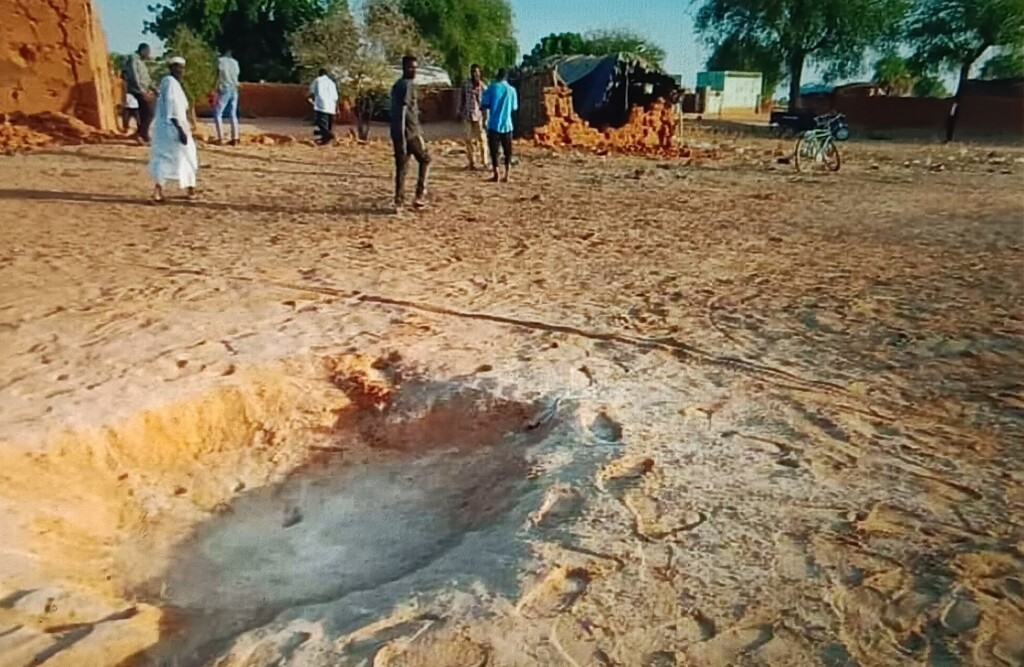West Kordofan ‘tripartite truce’ violated after less than a day

Craters from shelling in Babanousa, West Kordofan (File photo: RD correspondent)
Air strikes targeted the 22nd Infantry Division quarters in Babanousa, West Kordofan, yesterday, triggering widespread anger and condemnation from residents. The attack violated a tripartite agreement signed just a day earlier between the Sudan Armed Forces (SAF), the Rapid Support Forces (RSF) and native administration leaders in the town.
The 22nd Infantry Division in Babanousa was hit by two shells yesterday morning. One division member sustained light injuries from the bombing, with no other casualties reported.
A tripartite truce signed by the warring parties and native administration* leaders in Babanousa, which came into effect on Wednesday, stipulated that parties “commit to halt escalation, prohibit SAF aircraft, and prevent RSF entry into the town”, Babanousa Omda Khareef told Radio Dabanga yesterday.
Residents were outraged at the ‘blatant violation’ of the agreement, which they accused the SAF of committing. Khareef said that most residents fled to find safer areas, continuing a mass outflux from Babanousa since rumours of an imminent attack emerged last week. The mayor asserted that it was not possible to identify the responsible party, “given the lack explanation from the regional SAF command”.
Regarding communication with the RSF, Khareef stated: “Following a meeting with the 22nd Division leadership, contacts were established to meet with RSF’s second commander Maj Gen Abdelrahim Dagalo, who assured us that Babanousa and other West Kordofan towns would not be subjected to RSF targeting.”
Addressing the humanitarian situation, the native administration leader said that people are living “out in the open” in harsh weather conditions, residents were urged to return after the region experienced relative calm post-bombing, he added. “We are broadcasting continuous calls for return through mosque loudspeakers.”
* The Native Administration was instituted by British colonial authorities seeking a pragmatic system of governance that allowed for effective control with limited oversight by the state. The state-appointed tribal leaders were also responsible for executing policies, collecting taxes, and mobilising labour on behalf of the central government. According to the Darfur Bar Association (DBA), the Native Administration during the 30-year rule of dictator Omar Al Bashir did not represent the real community leaders.











 and then
and then